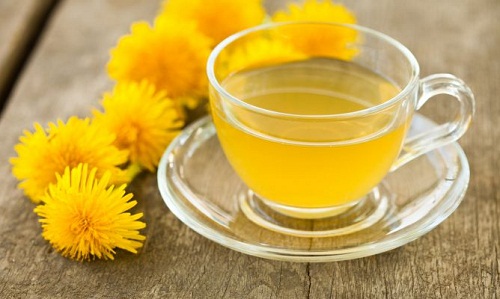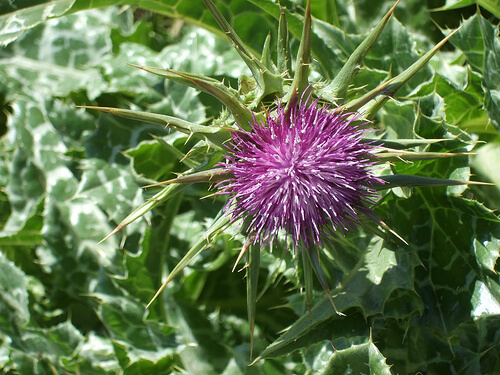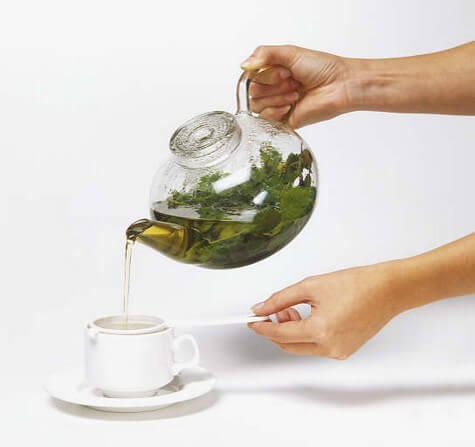Medicinal Herbs to Treat Uric Acid


Written and verified by psychologist Valeria Sabater
Uric acid is a very common problem today. Bad life habits and a poor diet are undoubtedly the main factors that cause metabolic waste to appear in your blood.We will explain what nature can do for you: medicinal plants to treat uric acid.
Great medicinal plants to treat uric acid
We all have a certain level of uric acid in our body. As long as it remains in balance, there won’t be any problems. But when you have a poor diet, you accumulate what’s known as purines, the waste that comes from the decomposition of protein from animal meat, as well as coffee and some alcoholic beverages.
What happens when there’s an excess of uric acid in your body? Gout, joint pain, and inflammation appear. And be careful, the most extreme risk you can suffer is kidney or liver failure. You have to keep it in mind.
Another thing to remember is that uric acid also causes an elevated blood pH, which can cause failure in different organs, lower defenses, fatigue, illnesses, brittle bones, etc.
So, what can you do to treat uric acid and avoid these serious problems? Stop eating red meat, animal protein, fat, lunch-meat, alcohol, refined flours, salt, sugar, carbonated drinks…
On the other hand, you should improve your diet by increasing your consumption of vegetables, fruits, and grains. It’s best if you increase the amount of oats, strawberries, and citrus fruits, like lemon, grapefruit, and oranges for example.
Read also:
You should also know there are medicinal plants that can help you. They obviously won’t substitute any medications but will serve as an excellent supplement, like this infusion you can drink everyday to cleanse your blood. These are the medicinal plants that will help you treat uric acid:
1. Diuretic plants that remove purines

A horsetail, dandelion, and artichoke infusion will let you eliminate excess fluids, cleanse out toxins, clean your blood and lymphatic system, and provide you with an excellent diuretic effect. Increasing urine elimination will help you eliminate all the purines in your body. They’re truly beneficial.
It would be best to drink them after your first meal, for example. You can choose the one you want each time. They’re great to treat uric acid.
You should also check out:
Learn About the Amazing Effects of Horsetail
2. The protective effect of milk thistle

You probably already know the great virtues of milk thistle. It’s a huge protector of the liver and all liver functions because of its cleansing effect. It promotes the formation of proteins and the transformation of ammonia to urea.
Milk thistle provides antioxidants and especially helps cleanse your blood from purines, the excess of proteins that end up deteriorating in your body. What if you start your day with a milk thistle infusion? You can find it in natural stores as an infusion as well as in pills. It’s fantastic!
3. Harpagophytum or grapple plant to reduce inflammation
It’s not very well known, but this therapeutic and curative root is worth knowing about. It’s great for this type of illness. This is because it acts directly on your muscles and joints, reducing the effect of inflammation from uric acid. If you already have gout, this will help you a lot and relieve pain and improve joint mobility. You can also find it in natural stores and it is perfect to take whenever you feel pain as a natural painkiller. Don’t forget: it is grapple plant root.
All cited sources were thoroughly reviewed by our team to ensure their quality, reliability, currency, and validity. The bibliography of this article was considered reliable and of academic or scientific accuracy.
- Minguela Pesquera, J. I., Hernando Rubio, A., Gallardo Ruiz, I., Martínez Fernández, I., García Ledesma, P., Muñoz González, R. I., … Montenegro Martínez, J. (2011). La hiperuricemia como factor de riesgo cardiovascular y renal. Dialisis y Trasplante. https://doi.org/10.1016/j.dialis.2011.03.002
- Maiuolo, J., Oppedisano, F., Gratteri, S., Muscoli, C., & Mollace, V. (2016). Regulation of uric acid metabolism and excretion. International Journal of Cardiology. https://doi.org/10.1016/j.ijcard.2015.08.109
- Menè, P., & Punzo, G. (2008). Uric acid: Bystander or culprit in hypertension and progressive renal disease. Journal of Hypertension. https://doi.org/10.1097/HJH.0b013e32830e4945
- MedlinePlus. Ácido úrico en la sangre. https://medlineplus.gov/spanish/ency/article/003476.htm
- Arthritis Society. Gout and nutrition. https://arthritis.ca/living-well/optimized-self/eating-well/gout-and-nutrition
- Nutrients. 2019 Aug; 11(8): 1736. Published online 2019 Jul 26. Uric Acid and Plant-Based Nutrition. doi: 10.3390/nu11081736
- J Altern Complement Med. 2009 Aug; 15(8): 929–934. The Diuretic Effect in Human Subjects of an Extract of Taraxacum officinale Folium over a Single Day. doi: 10.1089/acm.2008.0152
- PennState Hershey. Horsetail. http://pennstatehershey.adam.com/content.aspx?productid=107&pid=33&gid=000257
- Food Technol Biotechnol. 2016 Dec; 54(4): 455–461. Assessment of the Antioxidant Activity of Silybum marianum Seed Extract and Its Protective Effect against DNA Oxidation, Protein Damage and Lipid Peroxidation. doi: 10.17113/ftb.54.04.16.4323
This text is provided for informational purposes only and does not replace consultation with a professional. If in doubt, consult your specialist.










